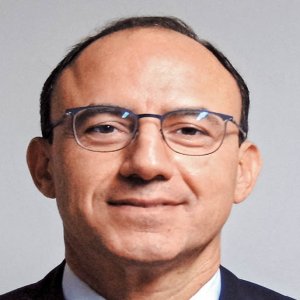Diverse Portfolio Ensures Growth

STORY INLINE POST
Q: Generic medicines are becoming more popular in Mexico and innovator patents are expiring. What is Pfizer’s strategy to deal with this?
A: Access to health services is an important challenge. Mexico spends 6 percent of its GDP on health, the lowest expenditure of all OECD member countries, as others spend an average of 9 percent on health. Pfizer has launched its first biosimilar, a product for rheumatoid arthritis that IMSS is providing, and we are developing biosimilar versions of its five most-sold biotech medicines to be launched over the next four or five years. Pfizer’s strategy is to participate in attractive segments and to target growth above the market rate. To achieve that goal, we must compete in innovation. The company has 90 projects globally and over US$7 billion invested in R&D. It also has a business base of patent-expired drugs that are still successful due to our quality prestige. We are successful in emerging markets because, although regulations have improved, physicians and patients do not trust all generics. However, we have also launched a generics line, a segment in which Pfizer enjoys an average growth of 35 to 40 percent annually.
Q: On what pathologies is your pipeline going to focus?
A: The five main areas in which Pfizer is working are oncology, central nervous system, cardiovascular, rare diseases and biosimilar drugs. It is hard to say where the best results will be, because out of every 100 projects that start in the clinical phase, only one will reach the market. We invest about US$7-8 billion per year and launch one or two new products per year.
Q: What is Pfizer’s strategy to sell innovative drugs to the Mexican public sector?
A: The arthritis biotech product Pfizer introduced to IMSS already existed and we developed the biosimilar version. In innovators, the challenge is showing public health institutions the cost/e effctiveness ratio of products, starting with the CSG IMSS, ISSSTE and decentralized agencies. A new drug has a patent with 15 years of exclusivity from when the molecule is discovered. It takes eight to 10 years to gain approval and introduce the drug into a market and in Mexico four to five years for the product to be available to the public sector.
Q: What is Pfizer’s approach to personalized medicine?
A: Pfizer already has some personalized products in the market; for example, our therapy for patients with ALK- positive non-small cell lung cancer. In immunotherapy, especially oncology, the objective is to strengthen the immune system to combat cancer. Most cancer treatments use biological and chemical compounds but this Pfizer treatment could help the immune system target tumor cells directly. In oncology, it is di cult to decide when to launch a product because it does not follow the same cycle as other products. Pfizer’s acquisition of Medivation will enable us to strengthen our clinical research into prostate, breast and blood cancer.
Q: What are Pfizer Mexico’s priorities for the rest of 2017 and 2018?
A: Along with Brazil, Pfizer Mexico is a priority subsidiary. Pfizer Mexico’s commercial objective is growing above the market growth of 5 percent. The company will continue launching innovative medicines, biosimilars and high-quality generics. We want to continue working closely with AMIIF to demonstrate that investing in health is one of the best investments in terms of economic impact. We also want to work on innovative access strategies.
Pfizer Mexico will also continue innovating in clinical research. With 121 million inhabitants, excellent professionals and a decent level of infrastructure, there should be much more clinical research in Mexico. This does not happen because administrative processes and institutions delay procedures more than they should. The company has over 400 research centers in Mexico, although it is still an incipient process. According to AMIIF, Mexico could be looking at a US$500 million investment in clinical research in the near future. Pfizer will invest US$16 million in Mexico in research in 2017.






















